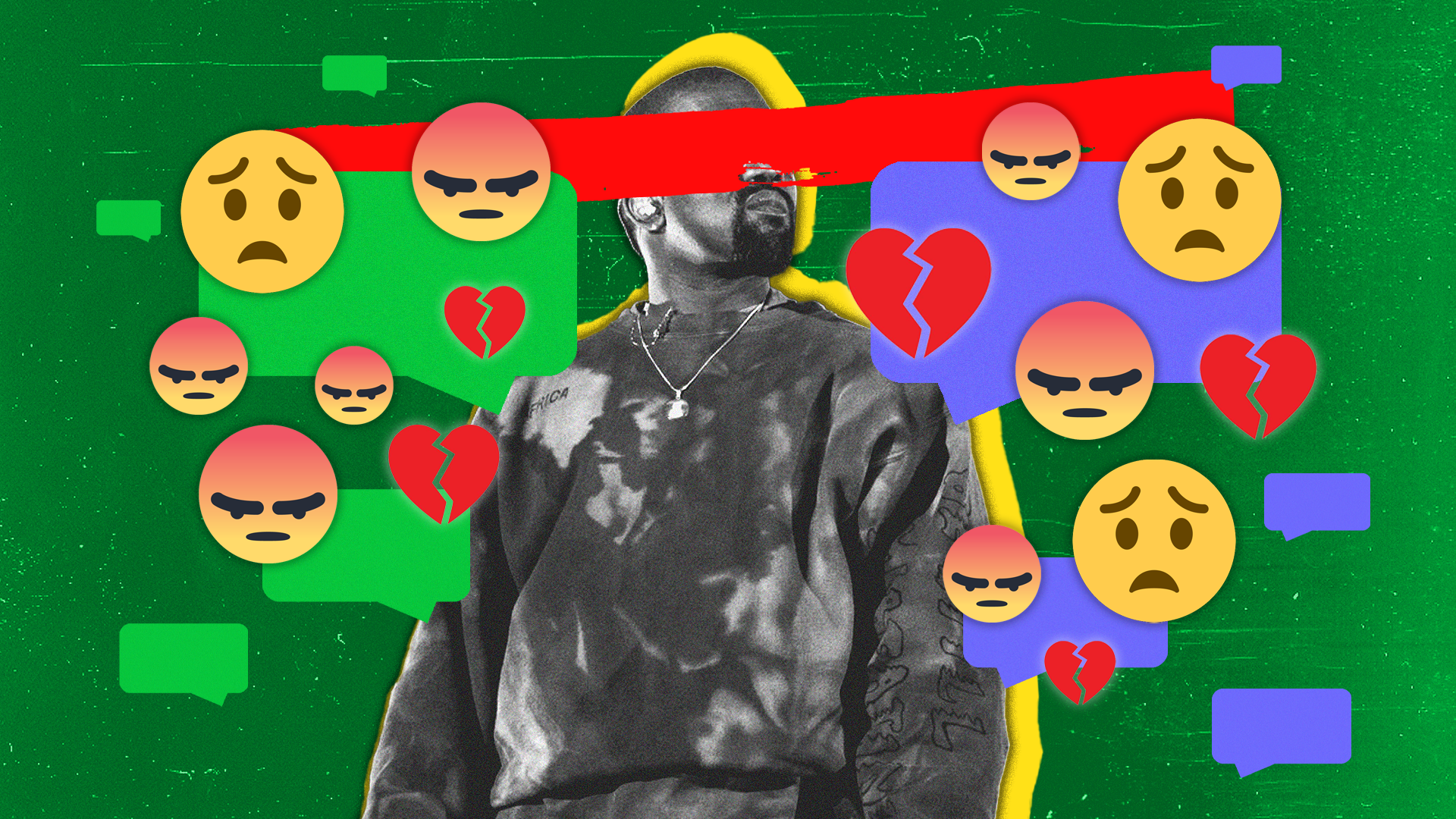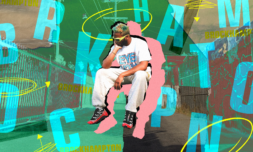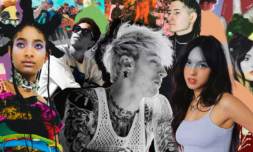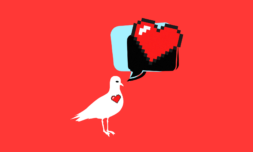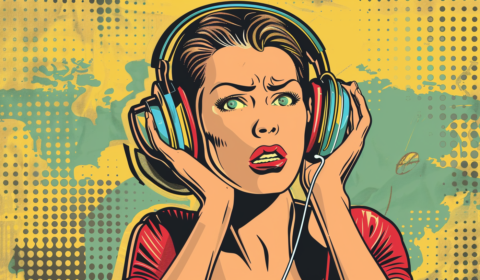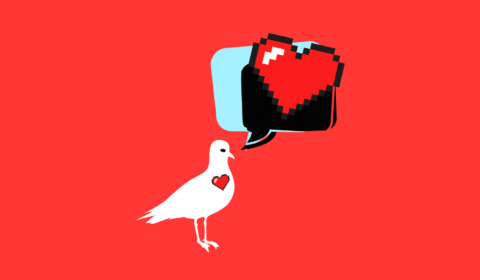What’s going on with Kanye West?
So, what has Kanye actually done?
Over the past few weeks his Instagram has been filled with screenshots of private messages with estranged ex-wife Kim, photos of Pete Davidson and Machine Gun Kelly, calls for his family to get back together, as well as announcements of a second Donda album.
All of this is tied in with a feud against long-time musical partner and friend Kid Cudi, alongside encouragements to be aggressive toward Pete and, bizarrely, a McDonald’s commercial. It’s certainly eclectic, to say the least.
What’s concerning is that Kanye seems to show no regard for privacy between him or any other party involved. He is happily sharing texts concerning his children and inviting slander toward individuals he personally has a problem with. This is not acceptable behaviour, nor should it be simply excused because it’s Kanye West.
Since I started writing this article, West has deleted all of his original posts and has put up a lengthy, almost PR-esque ‘apology’ that promises better behaviour moving forward. He has continued to upload and then remove aggressive or problematic images since.
This behaviour is not unusual for West, who has regularly stirred drama with outspoken comments since the beginning of his career.
In the last few years he has seemingly taken every necessary step to generate reactions from the public and the press, rocking up unannounced at the TMZ office, parading around in a MAGA hat, and dropping albums in rapid fashion. It’s hard to tell how much of it is calculated, narcissistic marketing, and how much is genuine, uncontrollable manic behaviour.
How are the public reacting?
The problem with Kanye’s antics is that they are almost always absorbed by media outlets and regurgitated as articles and quick news stories to boost engagement numbers.
His behaviour is highly profitable, which means it is usually within the interest of publishers to see him spiral into manic, erratic episodes of reckless tweeting and posting. Kanye as a public figure exists a commercial entity rather than a real human being, opening him up to constant scrutiny, criticism, and disdain from the public.
Some of this is warranted, as mentioned. Kanye absolutely plays into this at times to keep himself relevant and within the public consciousness. But our overwhelming lack of empathy toward celebrity struggles goes beyond just West.
Shows such as Love Island, for example, encourage constant Twitter discussion on contestants. We dissect everything from outfits, to make-up, to personality traits and behaviours. The show has had a history of poor mental health treatment as participants struggle with overwhelming attention once leaving the show.
TikTok stars face similar waves of judgement. YouTube videos that deconstruct content from individuals such as Charlie D’Amelio and Addison Rae rack up millions of views, with every aspect of their personality on display for public blasting. Considering that some of these influencers are seventeen, it is a lot to endure at such a young age.
Celebrity obsession has existed for decades. A glance at the child stars and pop icons from the noughties – Britney Spears, Lindsay Lohan, Amanda Bynes – is enough to demonstrate how detrimental our fixation on individuals can really be.
Constant attention and criticism is and always will be harmful, even if it is used to profiteer and remain relevant in the zeitgeist.
While we’ve made some strides since then to become more understanding and empathetic, the invention of social media has made our relationship with public figures both more intimate and vicious. We feel like we know Kanye West on a closer level than we did two decades ago and, as a result, are comfortable with humouring and making light of concerning behaviours while assuming we know the full details about his situation.
Ultimately, it’s a shame to see these recent outbursts be utilised by publications for quick, drama-fuelled articles, rather than as a springboard to talk about mental health. Media outlets are encouraging our obsessive celebrity gossip, rather than trying to use this as an opportunity to learn.
Where is the discussion about abusive relationships, manipulative exes, bipolar episodes, and the signs you should be aware of? These would be more helpful insights that would keep Kanye’s brand from becoming a vanity exercise endorsed by TMZ, the Daily Mail, and every other quick news outlet.
What should we change moving forward?
To be clear, I am not saying that Kanye’s actions deserve praise or intense sympathy. He is not in the right in this situation, at least from the outside. Constant harassment of an ex is not something to advocate.
What I am saying is that we need to approach situations such as this with greater care. Instead of dragging a celebrity through the mud with click bait articles and YouTube videos that further vilify an already divisive figure, why not use it to discuss topics in a serious, genuine manner?
We should show concern for all parties involved and stop giving Kanye the headlines he always generates just for existing. This approach extends to stars across the spectrum.
We shouldn’t excuse poor behaviour and must hold people accountable for being terrible, obviously, but we need to remember that they too are real people. Our constant interaction with high-end musicians and public figures makes it easy to remove the individual from the brand or art, but we need to retain a sense of human understanding as an audience.
Kanye shouldn’t be championed or idolised. He definitely doesn’t need more yes men. Instead, he needs to be shown that the public is concerned, disapproves of his behaviour, and takes his situation seriously.
The Pete Davidson ‘civil war’ memes might be funny for a brief moment – but the consequences could be far more permanent and serious if not handled with greater care.









